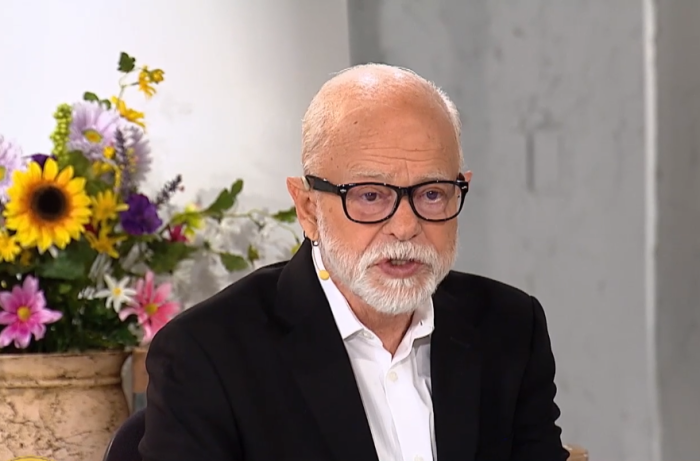Televangelist Jim Bakker blames his 1989 imprisonment for fraud on ‘cancel culture’

Televangelist Jim Bakker isn’t happy with cancel culture and believes his imprisonment for fraud in 1989 aided by “a group of preachers” but mostly the media at the height of his ministry's success was an early example of cancel culture.
“They canceled me,” Bakker declared on “The Jim Bakker Show” last Friday.
Bakker was indicted in 1988 on eight counts of mail fraud, 15 counts of wire fraud and one count of conspiracy. According to The New York Times, government prosecutors argued that Bakker bilked followers of his PTL Ministry out of $158 million by offering promises of lifetime vacations he could not provide.
He was also accused of diverting about $3.7 million to support a lavish lifestyle, including an air-conditioned dog house and a fleet of Mercedes-Benzes and Rolls-Royces.
He was found guilty on all 24 counts on Oct. 5, 1989, and sentenced to 45 years in prison. He was ordered to pay a $500,000 fine. Bakker later filed an appeal. In 1991, an appellate court upheld his conviction. But he was granted a sentence-reduction hearing, during which his sentence was reduced to eight years. He served almost five years before he received parole in 1994.
But Bakker argues that when he looks back at what happened, he was really canceled by preachers who wanted to take over his ministry and the media.
“It was a group of preachers earlier that worked with them but mainly it was the media," he said. "And the media got a Pulitzer Prize for putting me in prison. That’s what they do. They reward the enemies of the Gospel. ... We had the largest ministry of its type in the world — Heritage USA. Millions of people came there, and it was millions being saved around the world. And they literally took it away, put it into bankruptcy. [They] said they were going to care for it. It was all lies. It was a takeover plan. And it was done in front of the world. And that is what cancel culture is."
He further argued that "one of the biggest agencies of the federal government produced video from my show video and edited it and put me in prison."
"They testified that it was that video that made people believe, ‘Well, something must be wrong,'" he contends. "They made me say things I didn’t say. They just put pieces together, thousands of pieces of my show. And so, when I went to trial for the last trial — after I got out of a prison, I was put on trial again — and in that, the lawyers got all that tape that the government had edited — the government did it!”
“Just like now, this is cancel culture — and they took it apart and put it back the way it was on the show. And the lies — they made me tell lies that weren’t there. When the courts heard this, they saw the first video that the government had edited and then they saw the one from the original. They voted unanimously that I wasn’t guilty.”
As The Charlotte Observer points out in a 2018 article about how Bakker's online biography stated that his case was "overturned," that his website "combines its narrative of his criminal case with a later civil class action suit."
"Those PTL partners, numbering close to 160,000, later won a $129.7 million civil suit against Bakker, but found he had no money. So they filed a class action suit to try to collect insurance money to cover their losses," the report states. "They lost that bid when a federal jury concluded in 1996 that the partnerships were not securities or investments. The people who paid for those 'lifetime partnership' vacation plans will never get their money back."
A recent study of cancel culture by the Pew Research Center shows that while some people see the controversial term as a way to hold people accountable for their actions, many others, particularly conservative Republicans, see it as a form of censorship.
“Conservative Republicans who had heard of the term were more likely than other partisan and ideological groups to see cancel culture as a form of censorship,” Pew noted.
About a quarter of conservative Republicans familiar with the term described it as censorship, compared with 15% of moderate or liberal Republicans and roughly one-in-ten or fewer Democrats, regardless of ideology.





























